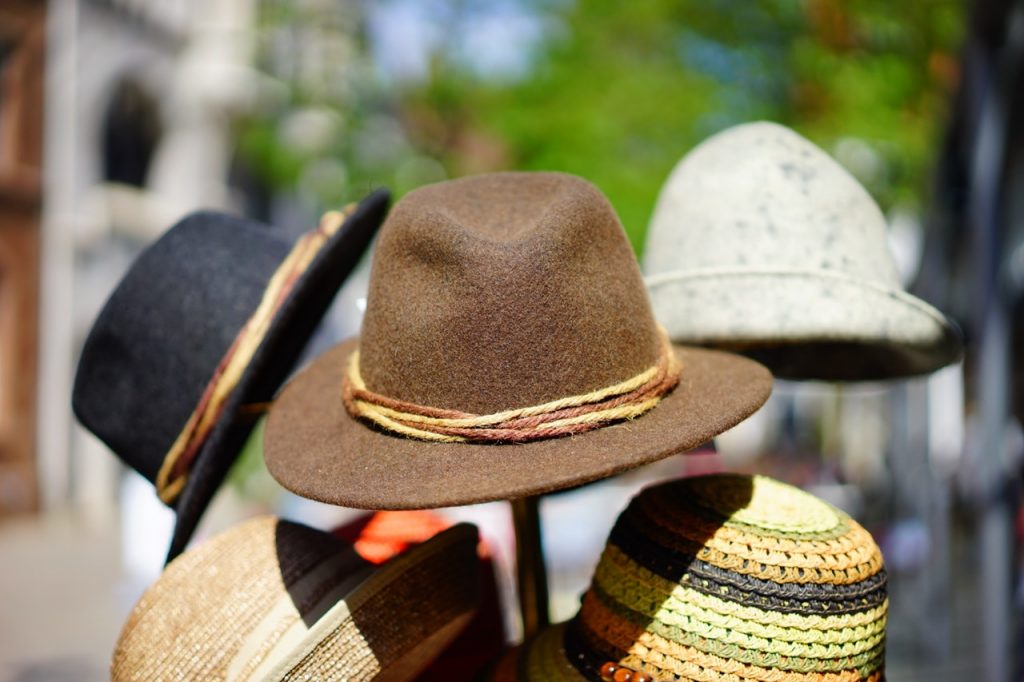
Marea Bright is a Melbourne milliner who has been in business since 1964, specialising in meticulously crafted, one-of-a-kind headwear for the spring races, weddings, cocktail and evening events, and casual wear. And, with a business journey that spans over 50 years, we were excited to learn some more about her business journey.
When did you first become interested in millinery?
I was born and bred into racing, from my great grandfather, S. Davis who won the 1864 Melbourne Cup on Lantern, to my father, who was also a jockey. And, as a jockey’s wife, my mother was always beautifully dressed.
Three times a year, we used to travel to Melbourne and Sydney from Wagga Wagga, where my mother would buy her dresses, handbags, shoes and hats.
How did you get started? Did you need to undergo any training?
I did a four-year degree and came out with a few honours at the end of it. Then, I started working at an accessory shop that sold hats, baskets, handbags, and more. The owner wanted to upgrade the hat section, which was my role for the next year and a half.
What were some of the challenges of starting your business?
The biggest challenge was my nerves – worrying about how I would do it on my own. While many courses today also teach you how to run a business along with your profession or trade, that wasn’t the case back then. However, I was lucky that I had experience doing book work for my father’s business.
How did you find customers in those early days?
Coming from a racing family, I actually knew a lot of the people from that world. The ladies who went to the races all knew me as a young person. They could also see what I was wearing, and liked what I was wearing, and soon started asking if I could make hats for them.
My business was built on word of mouth, which is still our main source of customers today.
Beyond word of mouth, how else have you found customers?
I also advertised in the Yellow Pages to reach more brides, who I would also help with hats and head pieces.
Before I moved to Melbourne in 2000, I was also in the chamber of commerce in Wagga, which made me an active person in the business world. I’m not sort of a person that just sits back, that sort of thing. I like to be with people. I enjoy being with people. I enjoy doing things. I’m not just a member of something – just sit in place and do nothing. I have to help at whatever I’m doing.
I also did a lot of charity work, partnering with different organisations like the Red Cross, the Country Women’s Association and catholic schools and running hat parades for them to help them raise funds. They would run an afternoon tea as a fundraiser, and I would provide the entertainment with the parades, where I was both the model as well as the creator.
Those parades then led to new business, as they helped more ladies see my hats – especially before I had a shop.
Those hat parades were made possible through some of the partnerships you’ve built over the years. What role do you feel that those partnerships have played in growing your business?
A major part, of course. I knew somebody in all of those organisations, and we still maintain those relationships to today. While they were helping me, I was helping them as well. They’re still willing to listen to if I’ve got a good idea. Or, if they have a good idea, we’ll thrash it around together.
What has changed when it comes to customers finding you today?
Many of my customers still find me by word of mouth, but the biggest change is that they are also finding me online – through social media, on Google, and on the Yellow Pages website.
So it’s very different. Once upon a time, you’d ring your advertising person. You’d have a discussion with them, and it’d all happen – they’d organise photos, the copy, and the advertising, and I could focus on create hats and head pieces, taking care of the merchandise, and cleaning the shop. Today, social media is another responsibility that many business owners need to take on themselves – when you leave your business, before you get to your business, and all the rest of it.
However, it does help you connect with a younger age group – for me, women from their 20s to mid-40s. That’s a group where most of them haven’t been educated to focus on quality dressing, and instead focus on trends.
What are some of the biggest lessons you’ve learned over your business journey?
To be true to yourself. To try and move on from anything that’s worrying you, and to put right anything that might be a troublesome situation. To keep going with the plan – making hats, creating hats, and looking after my customers.
This article was written by Yellow.



0 comments on “One milliner’s lessons from 50+ years in business”